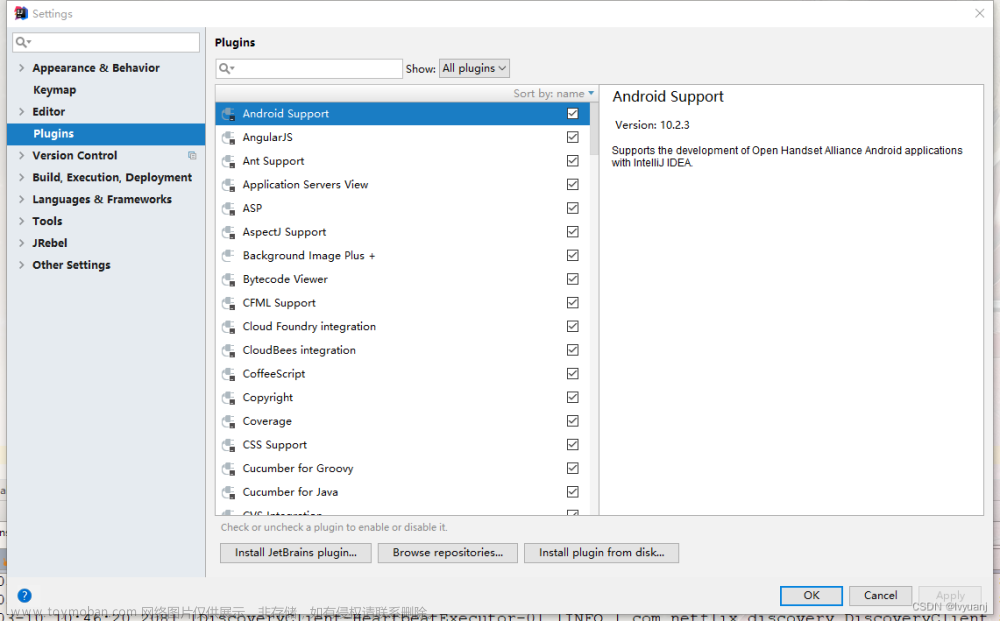插件编写者指南
GStreamer 插件基础
创建 高级 元素类型
创建 高级特殊元素类型
- 在本指南中,您将学习如何应用基本的 GStreamer 编程概念来编写一个简单的插件。
编写插件的基础流程-
构建样板
- 通过下载模板参考,重写、添加相应的函数
- $ cd ~/gst-template/gst-plugin/src
- $ …/tools/make_element MyFilter
- 大写对于插件的名称很重要。请记住,在某些操作系统下,大写通常在指定目录和文件名时也很重要。
- 得到 gstmyfilter.c和gstmyfilter.h.
- 通过下载模板参考,重写、添加相应的函数
// 数据结构 && 双构造函数(gst_XXX_class_init + XXX_init )
typedef struct _GstMyFilter {
GstElement element;
GstPad *sinkpad, *srcpad;
gboolean silent;
} GstMyFilter;
gst_XXX_class_init(){
// 1. 设置属性
gst_my_filter_set_property();
gst_my_filter_set_property();
g_object_class_install_property() ;
// 2. 元素元数据 元素详细信息 数据提供额外的元素信息。
gst_element_class_set_details_simple() ||
gst_element_class_set_metadata() || gst_element_class_set_static_metadata();
// 3. pad模版: GstStaticPadTemplate 是对元素将(或可能)创建和使用的pad的描述。
static GstStaticPadTemplate sink_factory =
GST_STATIC_PAD_TEMPLATE (
"sink",
GST_PAD_SINK,
GST_PAD_ALWAYS,
GST_STATIC_CAPS ("ANY") // or others
);
gst_element_class_add_pad_template ( gst_static_pad_template_get() ).
// 4. 管理过滤器状态
element_class->change_state = gst_my_filter_change_state;
// 5.
};
xxxxxx_init(){
GST_DEBUG_CATEGORY_INIT();
gst_element_register();
/* 一旦我们编写了定义插件所有部分的代码,我们就需要编写 plugin_init() / xxxxxx_init() 函数。
* 这是一个特殊的函数,它在插件加载后立即被调用,并且应该返回 TRUE 或FALSE,
* 具体取决于它是否正确加载了任何依赖项。
* 此外,在此函数中,应注册插件中任何受支持的元素类型。
* 返回的信息将缓存在中央注册表中。
*/
}GST_PLUGIN_DEFINE();
-
自定义/指定 pad: 数据进出元素的端口
- 静态 pad 模板如何将 pad 模板注册到元素类。
- 事件功能:_event () -function 配置特定格式以及如何注册函数以让数据流过元素。
- 创建 pad 后,您必须设置一个 _chain ()函数指针,该指针将接收和处理 sinkpad 上的输入数据。
- dequery 询问功能:
static void
gst_my_filter_init (GstMyFilter *filter)
{
filter->sinkpad = gst_pad_new_from_static_template (
&sink_template, "sink");// "src" is same
// gst_pad_set_event_function (filter->sinkpad,
// GST_DEBUG_FUNCPTR (gst_my_filter_sink_event));
// gst_pad_set_chain_function (filter->sinkpad,
// GST_DEBUG_FUNCPTR (gst_my_filter_chain));
// gst_pad_set_query_function (filter->sinkpad,
// GST_DEBUG_FUNCPTR (gst_my_filter_src_query));
GST_PAD_SET_PROXY_CAPS (filter->sinkpad);
gst_element_add_pad (GST_ELEMENT (filter), filter->sinkpad);
filter->silent = FALSE;
}
- PAD ->_chain 功能: 是进行所有数据处理的函数。
- SISO 函数,线性函数
- 因此对于每个传入缓冲区,也会有一个缓冲区流出。
- 缓冲区并不总是可写的。
static GstFlowReturn
gst_my_filter_chain(GstPad *pad, GstObject *parent, GstBuffer *buf){
// ...
return gst_pad_push (filter->srcpad, buf);
}
- PAD ->_事件功能: 事件函数
- 会通知您数据流中发生的特殊事件(例如 caps、end-of-stream、newsegment、tags 等)。
- 事件可以在上游和下游传播,因此您可以在接收垫和源垫上接收它们。
static gboolean gst_my_filter_sink_event (GstPad *pad,
GstObject *parent,
GstEvent *event){
switch (GST_EVENT_TYPE (event)) {
default:
ret = gst_pad_event_default (pad, parent, event);
break;
}
return ret;
};
-
PAD -> dequery() 查询功能 必须回复
- 诸如位置、持续时间之类的查询,
- 查询可以在上游和下游传播,
static gboolean gst_my_filter_src_query (GstPad *pad, GstObject *parent, GstQuery *query){ switch (GST_QUERY_TYPE (query)) { default: ret = gst_pad_query_default (pad, parent, query); break; } return ret; }; -
4 种 states 状态:状态描述了元素实例是否已初始化、是否准备好传输数据以及当前是否正在处理数据
- GST_STATE_NULL
GST_STATE_NULL是元素的默认状态。
在这种状态下,它没有分配任何运行时资源,它没有加载任何运行时库,它显然不能处理数据。 - GST_STATE_READY
GST_STATE_READY是元素可以处于的下一个状态。
在 READY 状态下,元素分配了所有默认资源(运行时库、运行时内存)。但是,它还没有分配或定义任何特定于流的东西。
当从 NULL 变为 READY 状态 ( GST_STATE_CHANGE_NULL_TO_READY) 时,元素应分配任何非流特定资源并应加载运行时可加载库(如果有)。
当反过来(从 READY 到 NULL, GST_STATE_CHANGE_READY_TO_NULL)时,元素应该卸载这些库并释放所有分配的资源。
这种资源的例子是硬件设备。
请注意,文件通常是流,因此应将它们视为特定于流的资源;因此,不应在此状态下分配它们。 - GST_STATE_PAUSED
GST_STATE_PAUSED是元素准备好接受和处理数据的状态。
对于大多数元素,此状态与 PLAYING 相同。此规则的唯一例外是接收器元素。接收器元素只接受一个数据缓冲区然后阻塞。此时管道已“预卷”并准备好立即呈现数据。 - GST_STATE_PLAYING
GST_STATE_PLAYING是元素可以处于的最高状态。对于大多数元素,此状态与 PAUSED 完全相同,
它们接受并处理带有数据的事件和缓冲区。只有 sink 元素需要区分 PAUSED 和 PLAYING 状态。在 PLAYING 状态下,sink 元素实际渲染传入的数据,例如将音频输出到声卡或将视频图片渲染到图像接收器。
-
派生自新的基类之一, 重写基类的 start() 和 stop() 虚函数
-
从 GstElement 或其他未构建在基类之上的类派生: 实现自己的状态更改函数才能收到状态更改的通知. as demuxer 或 muxer
- 可以通过虚函数指针通知元素状态变化。在此函数中,元素可以初始化元素所需的任何类型的特定数据,并且可以选择无法从一种状态转到另一种状态。
- 不要为未处理的状态更改 g_assert;这由 GstElement 基类处理。
- GST_STATE_NULL
static GstStateChangeReturn
gst_my_filter_change_state (GstElement *element, GstStateChange transition){
switch (transition) {
case GST_STATE_CHANGE_NULL_TO_READY:
case GST_STATE_CHANGE_PAUSED_TO_PLAYING:
};
/* 向上 (NULL=>READY, READY=>PAUSED, PAUSED=>PLAYING)
* 向下 (PLAYING=>PAUSED, PAUSED=>READY, READY=>NULL) 状态更改在两个单独的switch块中处理
* 向下状态更改只有在我们链接到父类的状态更改函数之后才能处理。为了安全地处理多个线程的并发访问
*/
switch (transition) {
case GST_STATE_CHANGE_READY_TO_NULL:
};
GST_ELEMENT_CLASS (parent_class)->change_state (element, transition) == GST_STATE_CHANGE_FAILURE;
};
- 属性 成员变量 控制
- 控制元素行为方式的主要和最重要的方法
static void
gst_my_filter_set_property (GObject *object,
guint prop_id,
const GValue *value,
GParamSpec *pspec);
static void
gst_my_filter_get_property (GObject *object,
guint prop_id,
GValue *value,
GParamSpec *pspec);
-
signal
- GObject signal 可用于通知应用程序特定于该对象的事件。
-
测试 plugin 的程序代码
初始化 GStreamer 核心库 gst_init ()/gst_init_get_option_group ()
使用 创建元素gst_element_factory_make ()
链接期间-运行期间文章来源:https://www.toymoban.com/news/detail-431931.html
永远不要忘记清理插件或测试应用程序中的内存。
当进入 NULL 状态时,你的元素应该清理分配的内存和缓存 应该关闭所有对可能的支持库的引用 应用程序应该unref ()通过管道并确保它不会崩溃。文章来源地址https://www.toymoban.com/news/detail-431931.html
#include <gst/gst.h>
static gboolean
bus_call (GstBus *bus,
GstMessage *msg,
gpointer data)
{
GMainLoop *loop = data;
switch (GST_MESSAGE_TYPE (msg)) {
case GST_MESSAGE_EOS:
g_print ("End-of-stream\n");
g_main_loop_quit (loop);
break;
case GST_MESSAGE_ERROR: {
gchar *debug = NULL;
GError *err = NULL;
gst_message_parse_error (msg, &err, &debug);
g_print ("Error: %s\n", err->message);
g_error_free (err);
if (debug) {
g_print ("Debug details: %s\n", debug);
g_free (debug);
}
g_main_loop_quit (loop);
break;
}
default:
break;
}
return TRUE;
}
gint
main (gint argc,
gchar *argv[])
{
GstStateChangeReturn ret;
GstElement *pipeline, *filesrc, *decoder, *filter, *sink;
GstElement *convert1, *convert2, *resample;
GMainLoop *loop;
GstBus *bus;
guint watch_id;
/* initialization */
gst_init (&argc, &argv);
loop = g_main_loop_new (NULL, FALSE);
if (argc != 2) {
g_print ("Usage: %s <mp3 filename>\n", argv[0]);
return 01;
}
/* create elements */
pipeline = gst_pipeline_new ("my_pipeline");
/* watch for messages on the pipeline's bus (note that this will only
* work like this when a GLib main loop is running) */
bus = gst_pipeline_get_bus (GST_PIPELINE (pipeline));
watch_id = gst_bus_add_watch (bus, bus_call, loop);
gst_object_unref (bus);
filesrc = gst_element_factory_make ("filesrc", "my_filesource");
decoder = gst_element_factory_make ("mad", "my_decoder");
/* putting an audioconvert element here to convert the output of the
* decoder into a format that my_filter can handle (we are assuming it
* will handle any sample rate here though) */
convert1 = gst_element_factory_make ("audioconvert", "audioconvert1");
/* use "identity" here for a filter that does nothing */
filter = gst_element_factory_make ("my_filter", "my_filter");
/* there should always be audioconvert and audioresample elements before
* the audio sink, since the capabilities of the audio sink usually vary
* depending on the environment (output used, sound card, driver etc.) */
convert2 = gst_element_factory_make ("audioconvert", "audioconvert2");
resample = gst_element_factory_make ("audioresample", "audioresample");
sink = gst_element_factory_make ("pulsesink", "audiosink");
if (!sink || !decoder) {
g_print ("Decoder or output could not be found - check your install\n");
return -1;
} else if (!convert1 || !convert2 || !resample) {
g_print ("Could not create audioconvert or audioresample element, "
"check your installation\n");
return -1;
} else if (!filter) {
g_print ("Your self-written filter could not be found. Make sure it "
"is installed correctly in $(libdir)/gstreamer-1.0/ or "
"~/.gstreamer-1.0/plugins/ and that gst-inspect-1.0 lists it. "
"If it doesn't, check with 'GST_DEBUG=*:2 gst-inspect-1.0' for "
"the reason why it is not being loaded.");
return -1;
}
g_object_set (G_OBJECT (filesrc), "location", argv[1], NULL);
gst_bin_add_many (GST_BIN (pipeline), filesrc, decoder, convert1, filter,
convert2, resample, sink, NULL);
/* link everything together */
if (!gst_element_link_many (filesrc, decoder, convert1, filter, convert2,
resample, sink, NULL)) {
g_print ("Failed to link one or more elements!\n");
return -1;
}
/* run */
ret = gst_element_set_state (pipeline, GST_STATE_PLAYING);
if (ret == GST_STATE_CHANGE_FAILURE) {
GstMessage *msg;
g_print ("Failed to start up pipeline!\n");
/* check if there is an error message with details on the bus */
msg = gst_bus_poll (bus, GST_MESSAGE_ERROR, 0);
if (msg) {
GError *err = NULL;
gst_message_parse_error (msg, &err, NULL);
g_print ("ERROR: %s\n", err->message);
g_error_free (err);
gst_message_unref (msg);
}
return -1;
}
g_main_loop_run (loop);
/* clean up */
gst_element_set_state (pipeline, GST_STATE_NULL);
gst_object_unref (pipeline);
g_source_remove (watch_id);
g_main_loop_unref (loop);
return 0;
}
到了这里,关于[GStreamer] (1) GStreamer-plugin 基础的文章就介绍完了。如果您还想了解更多内容,请在右上角搜索TOY模板网以前的文章或继续浏览下面的相关文章,希望大家以后多多支持TOY模板网!













